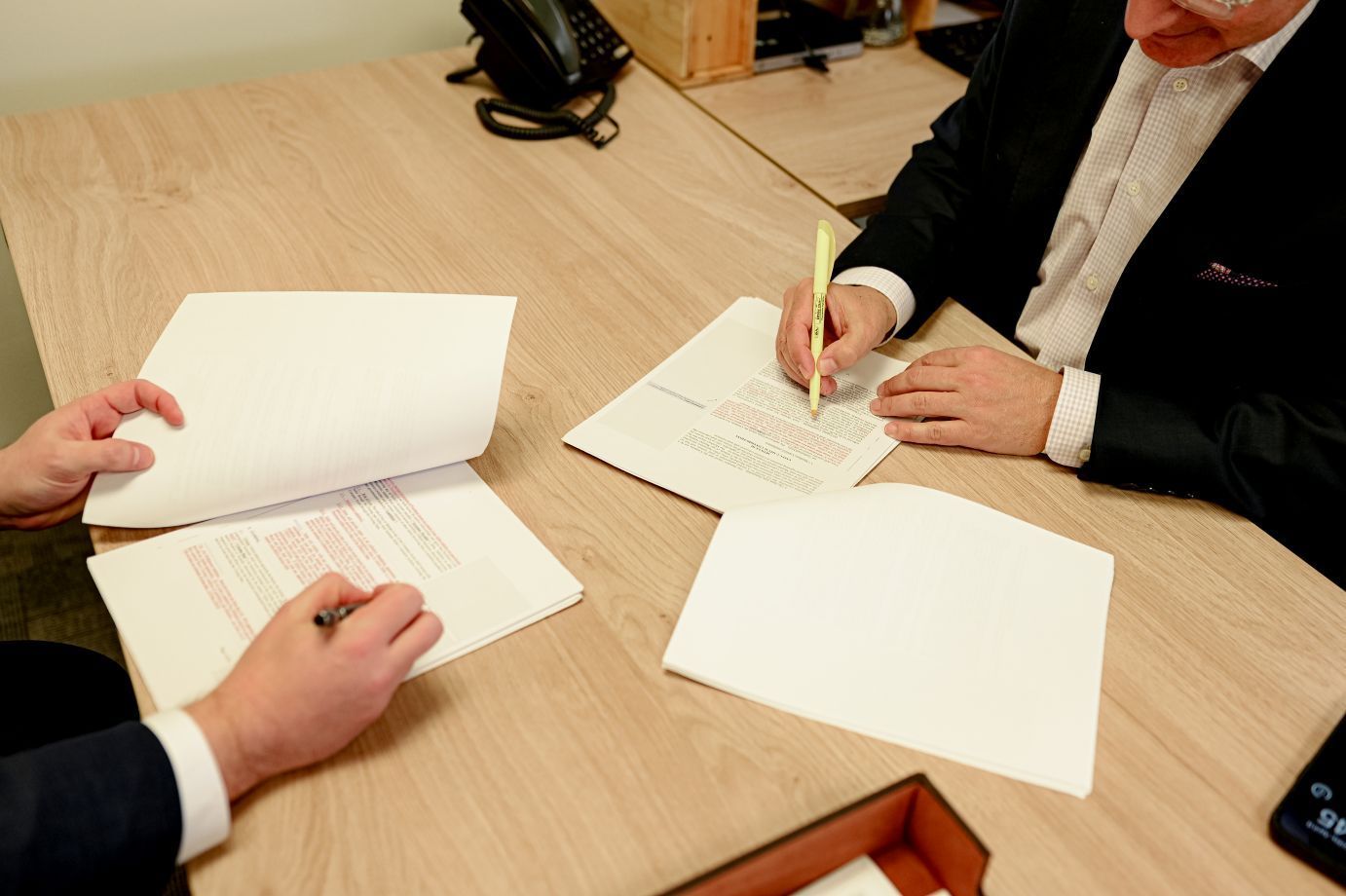By Jordan Uditsky
•
January 21, 2026
For employers and employees alike, in workplaces from restaurants to factories to dental practices, the specter of a visit from ICE, CBP, or other federal immigration forces looms large. Trepidation and fear are common feelings in this perilous climate, exacerbated by uncertainty as to one’s rights and how to respond when militarized agents arrive at a workplace. For dental practice owners, protecting their employees, patients, and business is a top priority, as is doing so in a legal, peaceful, and effective manner that doesn’t make a difficult situation worse. That is why it is so critical that you understand your rights and obligations in the face of such intrusions. While you should absolutely and immediately contact counsel if immigration agents show up at your practice, here is some practical guidance to help keep you and your employees safe. Different Responses to Different Types of ICE Actions Historically, ICE has conducted three types of workplace actions: I-9 audits (Notice of Inspection or “NOI”), which are administrative reviews of employment eligibility verification forms; worksite enforcement operations, which may include arrests; and searches pursuant to a warrant. Unfortunately, these customary practices have recently expanded to include warrantless, legally unauthorized, and sometimes violent entry into workplaces. The type of action the agency takes determines your obligations and your rights. An I-9 audit begins with a formal notice, typically giving you three business days to produce your I-9 forms and supporting documentation. A worksite enforcement operation or raid, however, often comes without warning. Understanding which situation you're facing is the critical first step. When ICE Arrives Without Notice – Keep Calm, Call Your Lawyer, and Ask For Authority If ICE agents appear at your workplace without prior notice, remain calm and follow these essential steps: · Keep calm , and don’t make any quick or impulsive decisions. Politely ask the agents to wait while you contact your attorney. You are not required to let agents enter non-public areas of your workplace without proper legal authority. While agents can enter your reception area or other common spaces as any member of the public could, they cannot access private areas such as treatment rooms, back offices, lunchrooms, or labs without your consent, a valid warrant, or an emergency. · Ask to see credentials and any warrants or legal documents. Scrutinize these thoroughly and understand this crucial distinction: an administrative warrant (Form I-200 or I-205) is not the same as a judicial warrant signed by a judge. Administrative warrants alone do not give ICE the authority to enter your private property or detain individuals. A judicial warrant, however, must be honored, though you should still speak with your lawyer who can help verify that it's properly signed, dated, and identifies the correct location and individuals. · Designate a single point of contact , ideally yourself as practice owner or an office manager, to communicate with the agents. Instruct other employees not to answer questions or provide information without guidance. This prevents confusion and minimizes the chances of miscommunication or escalation. Understanding Your Rights Employers have constitutional rights that apply during ICE encounters. The Fourth Amendment protects against unreasonable searches and seizures. As noted, without a judicial warrant or your consent, ICE generally cannot enter private areas of your practice, search filing cabinets or computer systems, or detain employees based solely on their immigration status. You have the right to refuse consent to a search. Exercise that right. If agents don't have a warrant, you can politely but firmly state: "I do not consent to a search of the premises. If you have a warrant signed by a judge, I would like to see it and have my attorney review it." If they have a warrant, verify it carefully to check that the address is correct, the signature is from a federal judge (not an ICE officer), and it's dated recently. Despite the recent rhetoric and actions of ICE agents and officials, you have an absolute right to observe, record, video, and document what's happening and what the agents are doing, so long as you do not interfere with or impede their operations. If ICE does enter your practice, you or your designated representative has the right to, and should, accompany agents to witness their actions. Protecting Your Employees Your employees also have rights, regardless of their immigration status. They have the right to remain silent and do not have to answer questions about their immigration status, where they were born, or how they entered the country. They have the right to refuse to show documents beyond what's necessary to demonstrate identity, unless they're under arrest. They should not lie or present false documents, as this can create additional legal problems. Before an ICE visit occurs, consider holding a "know your rights" training for employees. Inform them that if ICE arrives, they should remain calm, not run, and not present false documents. Provide them with a card that includes information about their rights and the contact information for your practice's attorney. You should never lie to federal agents or provide false information. However, you are not required to volunteer information or answer questions beyond what's legally necessary. If asked about specific employees, you can politely decline to answer and refer agents to your attorney. Once ICE agents leave, immediately document everything that occurred and save any videos or recordings so you can send them to your attorney. Preparing Before ICE Arrives The best time to prepare for an ICE visit is before it happens. Consider the following proactive steps: · Develop a written policy for your practice that designates who will handle ICE encounters, what steps to take, and how to contact your attorney. · Conduct an internal I-9 audit to identify and correct any paperwork errors or gaps. · Train office managers and supervisors on the protocol. Everyone should know not to consent to searches, not to answer questions without guidance, and to remain professional and calm. Post "know your rights" information for employees in common areas. If you have any questions or concerns regarding ICE or immigration enforcement activities at your practice, please contact Grogan, Hesse & Uditsky today. We focus a substantial part of our practice on providing exceptional legal services for dentists and dental practices, as well as orthodontists, periodontists, endodontists, pediatric dentists, and oral surgeons. We bring unique insights and deep commitment to protecting the interests of dental professionals and their practices and welcome the opportunity to work with you. Jordan Uditsky, an accomplished businessman and seasoned attorney, combines his experience as a legal counselor and successful entrepreneur to advise dentists and other business owners in the Chicago area. Jordan grew up in a dental family, with his father, grandfather, and sister each owning their own dental practices, and this blend of legal, business, and personal experience provides Jordan with unique insight into his clients’ needs, concerns, and goals.










